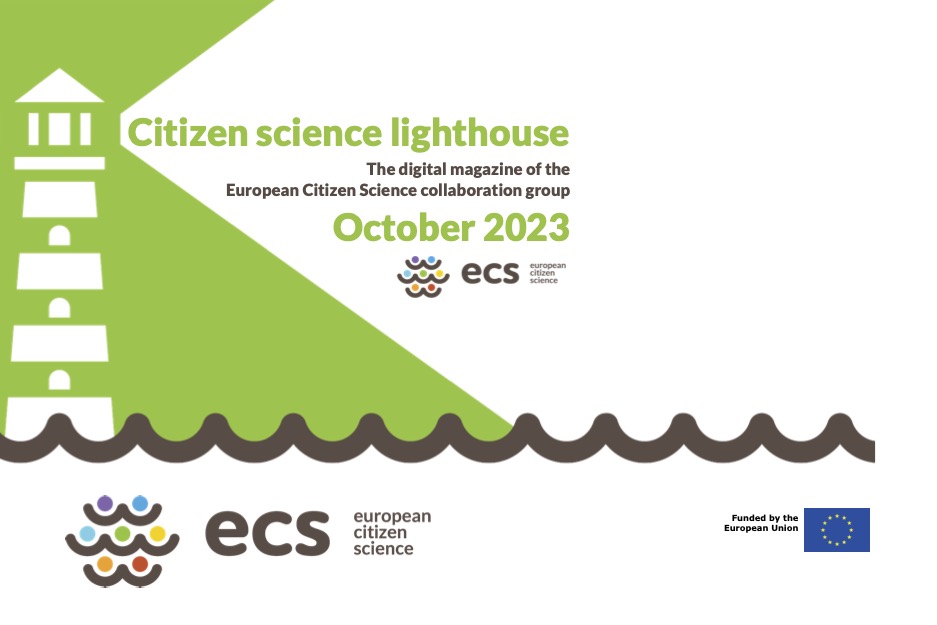
FOCUS: Legal challenges for citizen science initiatives: Stories from the field
Annelies Duerinckx
Oct. 2, 2023, 6 a.m.
(Ph: Simona Cerrato)
What are the legal hurdles faced by citizen science projects? This is a particularly challenging topic and there is an urgent need for clearer guidance. This is what we try to do at Scivil, the Flemish citizen science centre in Belgium, among other actions to support citizen science initiatives.
Navigating rules on volunteering
“I receive a sickness allowance. Do I need permission from the health insurance fund to plant soy in my garden for science?”
One legal question is whether citizen science qualifies as volunteering, particularly for individuals receiving benefits such as retirement, sickness, or unemployment allowances. In some cases, citizens may need permission from relevant authorities to participate in citizen science activities. For instance, if you receive a sickness allowance, you may need approval from your health insurance fund before engaging in citizen science. In some cases, this makes perfect sense, such as when you plan to spend a large part of your days delving into the archives of the local history museum doing research. In other cases, the blurred line between volunteering and citizen science can lead to confusion. It feels strange to require permission from your health insurance fund to put an air quality sensor on your house.
The rules governing volunteering are designed to protect volunteers and to ensure they are not held liable for potential damages. When a citizen science project takes place within your own home, the liability risk is minimal, and permission may not be required. Still, it is up to the citizen to verify this. When the project extends beyond your home or involves more significant risks, project organisers should provide insurance coverage for their citizen scientists.
The challenge lies in determining when citizen science crosses the threshold from casual volunteering into a more structured project. For instance, counting butterflies in your garden might not trigger the same requirements as participating in a lab-based scientific endeavour.
Privacy proof citizen science
“We want to record noises in a city environment to train a smart system to automatically recognise the type of sound. What are the privacy rules for this?”
Privacy considerations are a significant aspect of citizen science. For example, recording human sound can be legally complex. Recording human conversation falls under criminal law and often requires permission from legal authorities such as an investigating judge. Another example are citizen science projects involving citizens’ location data. For instance, mapping the safety of students' routes to school is a valuable endeavour. However, it's crucial to safeguard students' privacy by not revealing their starting points (i.e., their homes).
To address these challenges, citizen science initiatives must establish privacy-proof protocols. For human sound recordings, the project can opt for very brief snippets that avoid capturing meaningful conversations, though this may limit the data's usefulness for training AI systems, which requires substantial, meaningful datasets. When mapping students' school routes, excluding the first kilometre to protect their identity and home location could be an option. However, this may not suffice for those in less populated regions. Conversely, it could prove too extensive for students residing very close to school, hindering their participation in the project altogether.
Finding a privacy-proof protocol that accommodates all potential citizen scientists can be a complex task. Balancing the collection of valuable data with privacy protection is an ongoing challenge in citizen science projects.
Intellectual property rights
“As a citizen, if my idea for a new AI application gets picked by the citizen science project, what are my patenting and commercialization rights?”
Intellectual property rights in citizen science are complex and involve questions of ownership, recognition, and commercialization. When a citizen scientist's idea is incorporated into a project, it raises issues regarding who owns the resulting intellectual property. Recognition and credit for citizen scientists are also important considerations. Some projects are addressing this with clear policies on ownership, attribution, and procedures for handling commercial opportunities. Still, these matters often require negotiation and legal expertise, areas where citizens typically do not possess specialised knowledge.
Supporting citizen science initiatives
In light of these legal challenges, the participants of the workshop on Citizen science & the Law: potential applications - moderated by Anna Berti Suman (Sensing for Justice project) and Annelies Duerinckx (Scivil) and held on August 1st, 2023, as part of the ECS Collaboration Group – discussed the need for support for citizen science initiatives in navigating legal aspects. There was consensus that citizen science initiatives need to be made aware of existing laws they can leverage or must adhere to.
One proposed idea that received a lot of support is to establish legal points of contact for citizen science initiatives, similar to those available for tenants seeking legal advice. While fostering such legal support points on a European level would be beneficial, it is essential to integrate them locally. These support points should offer tailored legal advice aligned with the specific rules and regulations of individual countries. Such an approach ensures that citizen science projects receive the precise guidance needed to address their unique legal challenges effectively.
In conclusion, while citizen science offers a powerful means of engaging the public in scientific research, it is not without legal challenges. To overcome these challenges, there is a need for guidelines, solutions, and increased awareness among citizen science organisers.